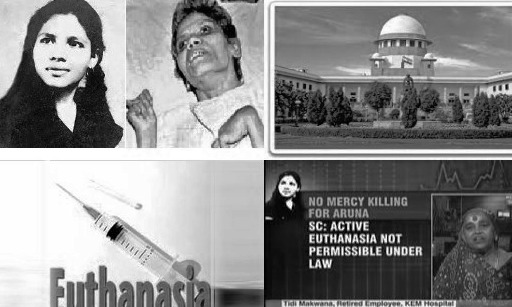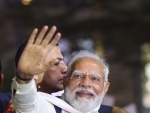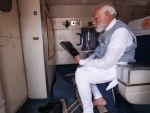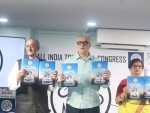April 24, 2024 07:07 (IST)

Raped nurse Aruna Shanbaug dies after 42 years in coma
Mumbai, May 18 (IBNS) Aruna Shanbaug, a former nurse who lived in a vegetative state in a Mumbai hospital since her brutal sexual assault in 1973 on its premises and was a subject of debate on euthanasia in India, died on Monday, ending an ordeal of 42 years.
The end came around 9-40 am in the KEM Hospital where she was a nurse. She died after a bout of pneumonia, doctors said.
Aruna, who was originally from Haldipur in Karnataka in India, was working as a junior nurse in 1973 at the King Edward Memorial (KEM) Hospital in Mumbai when she was brutalized with a chain and sodomised by a ward boy, Sohanlal Bhartha Walmiki who wanted to avenge his insult after being spurned by her.
While the Supreme Court in a plea for euthanasia filed by Aruna's friend journalist Pinki Virani, had set up a medical board to examine her state, the mercy killing petition was later turned down in March 2011.
In a secluded hospital bed in this bustling Indian metropolis that was Mumbai, Aruna was lain brain dead for over 42 years after a brutal sexual assault.
But India’s Supreme Court had ruled that Aruna Shanbaug should live, while at the same time supporting passive euthanasia – or the withholding of medical treatments that are keeping her alive.
The court’s decision to rule out euthanasia of any kind for Shanbaug had gladdened her former colleagues – nurses at the King Edward Memorial (KEM) Hospital – who were taking care of her since the day in 1973 when she was sodomised and strangled with a dog chain by a hospital custodian whose advances she had spurned.
The decision, however, had saddened Pinki Virani, the journalist who petitioned the court to allow euthanasia for her.
Virani also recognised the importance of the landmark decision in a country where euthanasia of any kind had previously been unlawful. This did not stop Virani from criticising Shanbaug’s fellow nurses who wanted to keep her alive.
“Because of Aruna Shanbaug – this tragic woman who has been denied the choice because of those who profess to ‘love’ her by touting her bedsore-less ‘life’ – no Indian hereinafter need suffer the way she does,” Virani had said after the apex court supported passive euthanasia despite not allowing it in the case of Aruna.
The Supreme Court verdict in 2011 came as a first step toward the passage of a law in India on euthanasia – allowing passive euthanasia in certain cases, based on merit.
The judged had observed that since “there is no statutory provision in our country as to the legal procedure for withdrawing life support to a person in PVS [permanent vegetative state]… passive euthanasia should be permitted in our country in certain situations.”
According to court euthanasia should not be permitted to Shanbaug because her caregivers are ready to tend to her medical needs. The hospital was taking care of her and as such the court decided that unless they want it, it will not be granted. Shanbaug’s family had shunned her since the incident. Virani’s petition was also rejected, as she was neither Shanbaug’s kin nor caregiver.
Support Our Journalism
We cannot do without you.. your contribution supports unbiased journalism
IBNS is not driven by any ism- not wokeism, not racism, not skewed secularism, not hyper right-wing or left liberal ideals, nor by any hardline religious beliefs or hyper nationalism. We want to serve you good old objective news, as they are. We do not judge or preach. We let people decide for themselves. We only try to present factual and well-sourced news.
Support objective journalism for a small contribution.
Latest Headlines
Renowned dancer and ex-professor at Chennai academy arrested on sexual harassment charges Wed, Apr 24 2024
'Has anyone robbed your mangalsutra during Congress rule?' Priyanka Gandhi counters PM's charge Wed, Apr 24 2024
Arvind Kejriwal, K Kavitha to stay in jail for another 14 days, next hearing on May 7 Tue, Apr 23 2024
'They want to break country': PM Modi's jibe over Goa Congress leader's constitution remarks Tue, Apr 23 2024
Indian envoy to Sri Lanka attends launch of Ramayana Trail Project Tue, Apr 23 2024







